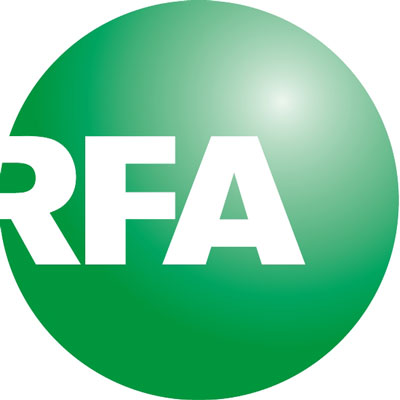
A-list actors and singers with a major slice of their fan base in mainland China have been lining up to sever ties with international fashion brands after they vowed to remove cotton sourced in Xinjiang — which has been linked to mass incarceration, rights abuses and forced labor — from their supply chains.
“Patriotic” Chinese celebrities including singer and actor Wang Yibo, quickly stepped up to show their loyalty to the ruling Chinese Communist Party with public statements condemning the move away from Xinjiang cotton.
Wang resigned as a Nike brand ambassador, saying he “firmly resists any words and actions that pollute China.”
Singer and actress Victoria Song and actor Huang Xuan meanwhile said they would be terminating their endorsement contracts with H&M, while actress Tang Songyun said she was breaking ties with Nike.
Chinese shoe-maker ANTA said it was pulling out of the Better Cotton Initiative, a group that has campaigned against forced labor in the textiles supply chain.
The Chinese branch of the Better Cotton Initiative (BCI) also rushed to distance itself from reports of forced labor in Xinjiang, despite the fact that many of the companies trying to eradicate Xinjiang cotton from their supply chains are its members.
By Thursday, actors from the democratic island of Taiwan including Ouyang Nana, Eddie Peng, Janine Chang, and Greg Hsu had joined the boycott of international fashion brands including Nike, Adidas, H&M, Converse, and Calvin Klein.
All made statements through their agents condemning “attempts aimed at defaming China,” saying that “national interests must come first” and cutting off ties with brands involved in the row over Xinjiang cotton.
Taiwanese artists, who make much of their money from Chinese fans, have previously apologized to China and its citizens over comments not in line with Beijing’s political line.
Statements shock Taiwan
The move shocked many in Taiwan, which has never been ruled by the CCP, nor formed part of the People’s Republic of China.
Taiwan President Tsai Ing-wen weighed into the debate, saying that China wouldn’t reach its stated goal of becoming a “responsible power” if it put pressure on international companies.
“Nationalism and patriotism are very simple emotions … but letting these emotions put pressure on enterprises will not bring any positive outcome,” she wrote on her Facebook page.
“We call on the Beijing authorities to face up to the Uyghur human rights issues squarely. International doubts and conflicts will only be resolved if the oppression ends,” she wrote.
Ruling Democratic Progressive Party (DPP) lawmaker Wu Siyao asked premier Su Tseng-chang in the island’s parliament, the Legislative Yuan, on Friday, for the government’s stance on Ouyang Nana’s statement, which used near-identical wording to most of the other artists’ statements on both sides of the Taiwan Strait.
“Some people, concerned with their own interests, fail to see the importance of human rights,” Su told lawmakers in reply. “Their words and deeds are inconsistent with our national standpoint.”
He said Taiwan’s 23 million people knew the importance of human rights protections, having transitioned from authoritarian rule to a democratic society.
Chiu Chui-cheng, Taiwan’s spokesman on relations with China, said on Wednesday that the CCP uses counterterrorism as a pretext to to suppress the freedom of thought and belief of people living in Xinjiang, and to monitor and persecute Uyghurs and other ethnic minorities.
Backlash on foreign brands
The backlash against foreign fashion brands began in China on Wednesday, when the CCP’s Youth League drew public attention to an earlier statement from H&M about no longer buying Xinjiang cotton.
This was followed by two articles in the CCP-backed Global Times, which quoted similar statements from Burberry, Adidas, Nike, Zara, and New Balance.
The CCP has hit out at fashion, auto, travel, and other companies in the past for failing to conform to what it sees as acceptable language regarding Taiwan, Tibet, and other political flashpoints, often garnering apologies and changes to official advertising or marketing materials in response.
But as liberal democracies increasingly deploy sanctions against Chinese officials linked to rights abuses, Xinjiang is an issue that international brands can’t afford to be associated with.
Kang Kai, chairman of Taiwan’s performing arts association, told RFA that performers shouldn’t get involved in politics.
“The key thing is that no performer should get involved in politics,” he said. “If they do, they will just run into bad luck in future.”
“It’s OK not to endorse anything … artists shouldn’t try to find shortcuts [to wealth and fame].”
Reported by Hsia Hsiao-hwa and Lu Xi for RFA’s Mandarin Service, and by Fong Tak Ho for the Cantonese Service. Translated and edited by Luisetta Mudie.